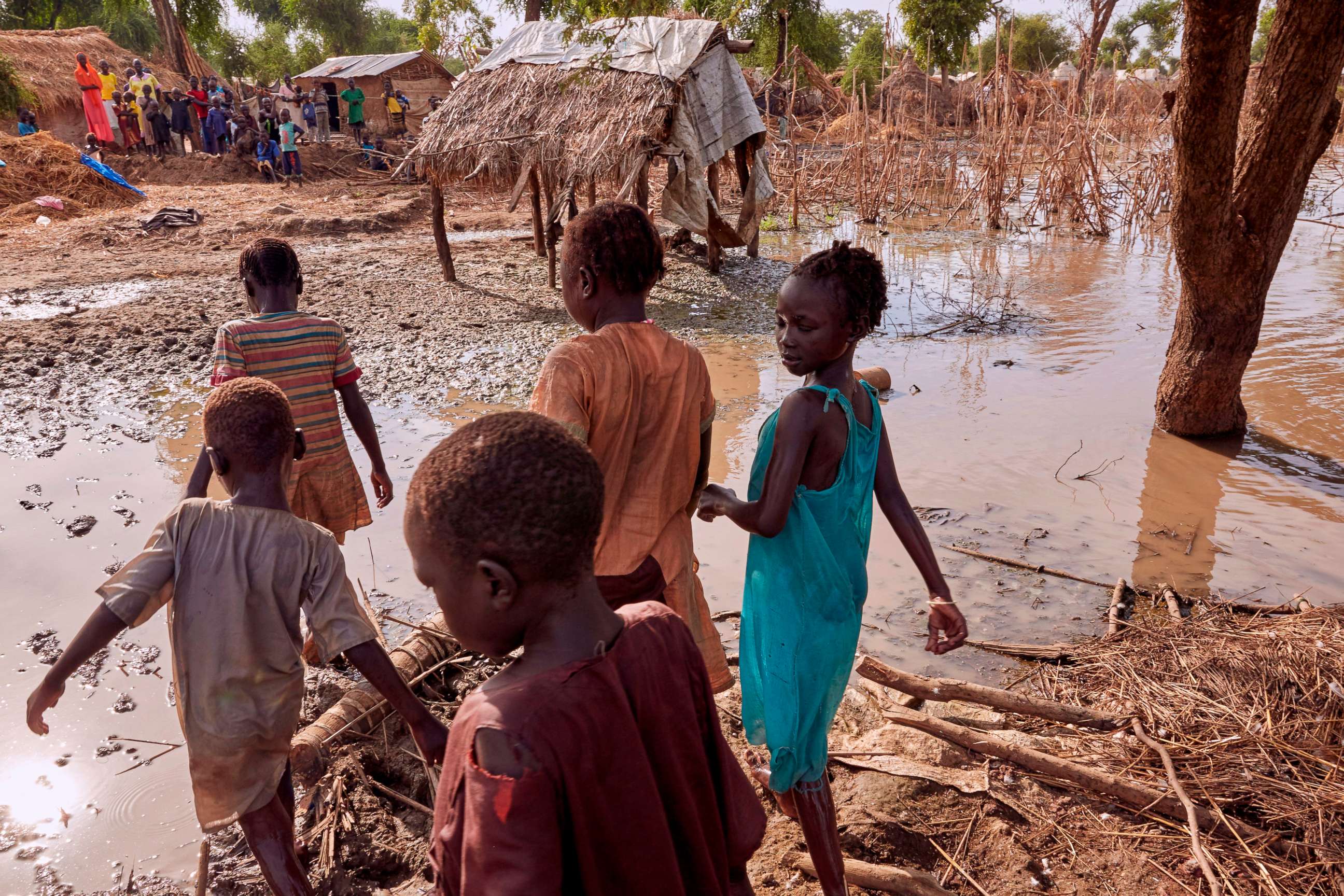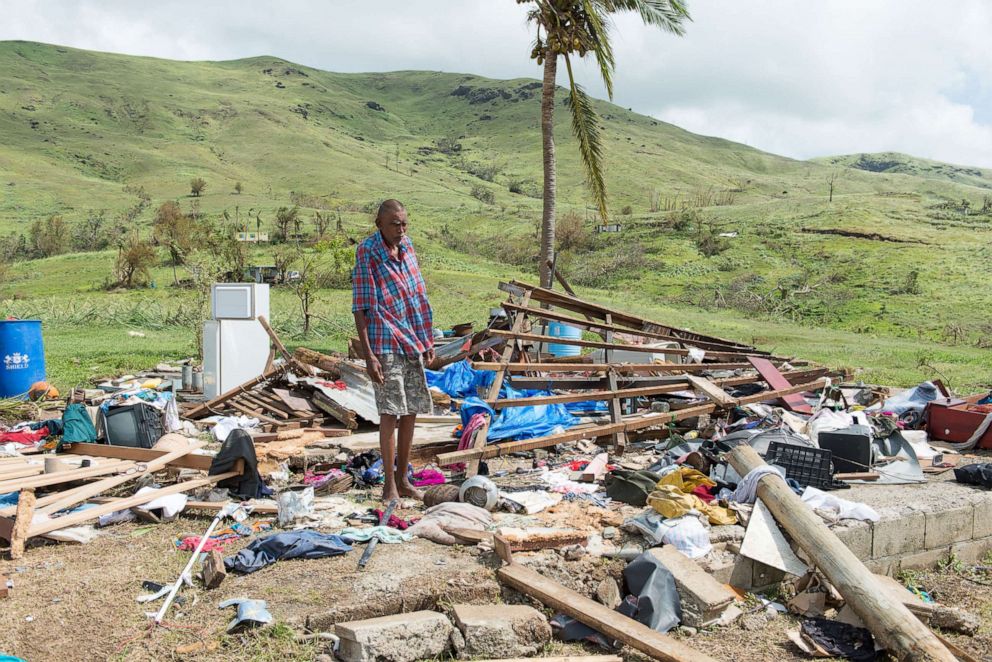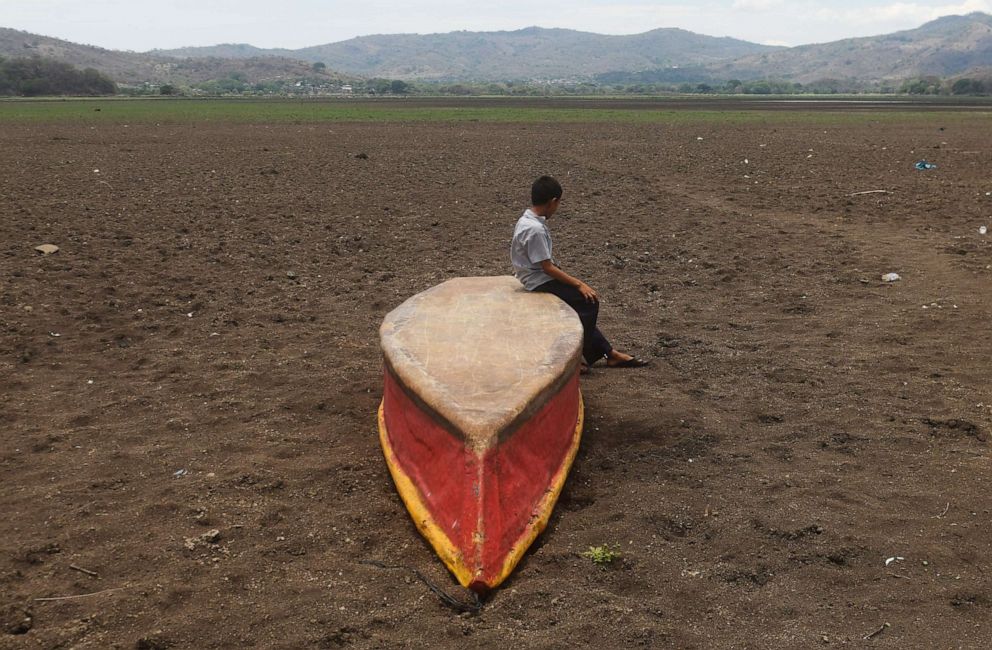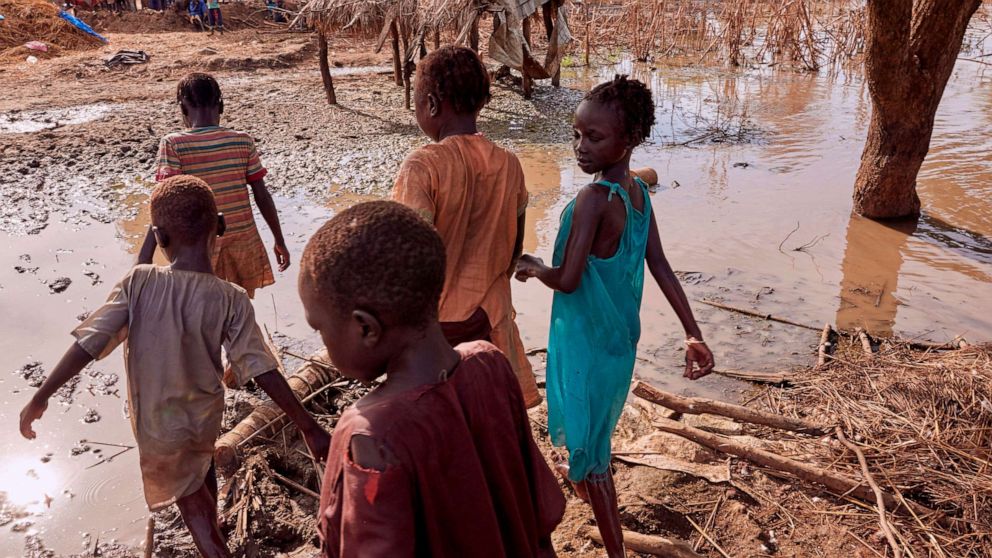Climate change forces 1 person from their home every 2 seconds, report finds
Climate-fueled disasters have forced 20 million people -- or one person every two seconds -- from their homes every year for the last decade, according to a new global report.
Thanks to the rapidly warming global climate, people are now seven times more likely to be displaced by floods, cyclones and wildfires than volcanic eruptions and earthquakes, and three times more likely than by conflict, according to a report released Monday by Oxfam International.
"Our governments are fueling a crisis that is driving millions of women, men and children from their homes and the poorest people in the poorest countries are paying the heaviest price," Chema Vera, acting executive director of Oxfam International, said in a statement.
"People are taking to the streets across the globe to demand urgent climate action. If politicians ignore their pleas, more people will die, more people will go hungry and more people will be forced from their homes."

The report comes as political leaders and climate experts gather in Madrid for a two-week summit to address the world's growing climate crisis.
The United Nations Climate Change Conference COP 25, which kicked off Monday, was originally scheduled to be held in Chile, but government officials there cancelled the event due to ongoing civil disturbances. The conference is expected to attract 29,000 attendees over the next two weeks.

"Governments can and must make Madrid matter," Vera said. "They must commit to faster, deeper emissions cuts and they must establish a new 'Loss and Damage' fund to help poor communities recover from climate disasters."
The Oxfam report found that the world's poorest societies were most vulnerable to climate-fueled displacement. Cuba, Dominica, Tuvalu, Philippines and Saint Maarten were identified as the countries where residents are at the highest risk of being displaced due to extreme weather events.

Economic losses from extreme weather disasters over the last decade have averaged out to about 2% of the affected countries' national income and as much as 20% for small island developing states, according to the report. Rich donor countries have largely left it to poorer countries to cover their own rising costs of extreme weather disasters despite their smaller contributions to the word's carbon pollution, according to the report.
About 80% of those displaced over the last decade were in Asia, home to over a third of the world’s poorest people, according to Oxfam, which is compromised of 19 independent charitable organizations.
"Despite this, the international community has made little progress towards the provision of new funds to help poor countries recover from loss and damage resulting from the climate emergency," researchers said in a statement. "As the 2019 UN Climate Summit opens, Oxfam is calling for more urgent and ambitious emissions reductions to minimize the impact of the crisis on people’s lives, and the establishment of a new 'Loss and Damage' finance facility to help communities recover and rebuild."




